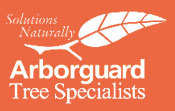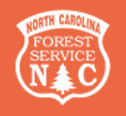A SERIES of Carolina Canopy Webinar Workshops
Apr 14, 2020 - Jul 21, 2020
9:00 a.m. (some times vary)
We are excited to announce our Carolina Canopy Webinar Series, providing you with new opportunities to learn about urban tree management practices and allowing you to stay involved with the industry through remote learning opportunities. If you register for the series of all 6 webinars at once, you will benefit from the discounted series rate. (If you would prefer to register for individual webinars separately, please use the separate registration event links.)
Trees and Stormwater
April 14, 2020
Speakers: Aaron Reese and Anna Reh-Gingerich, City of Wilmington
We all know trees use water, but how much do they use? Do they really have an impact on runoff from storm events? We’ll explore these questions and learn how much impact trees make in the fight against water pollution.
Designing Landscapes with Trees in Mind
April 28,2020
Speaker: Julieta Sherk, NC State University
Julieta will discuss techniques used to design urban landscapes with trees, allowing for both above and below ground growth.
Strategies for Effective Tree Ordinances
May 13, 2020
Speakers: Dr. Paul Ries, Insightful Nature LLC
Effective public tree ordinances are a key ingredient in a successful municipal urban forestry program. But many cities struggle to find the right balance in developing, administering, or evaluating a tree ordinance. Dr. Ries will discuss philosophies, processes, and strategies for making your tree ordinance as effective as it can be. Attendees will also learn about how NC regulations and statutes may impact the ability to regulate trees within your municipality.
The Operational Aspects of Tree Protection Ordinances
May 27, 2020
Speaker: Ed Macie, US Forest Service (Retired)
This presentation will focus on best management practices related to the requirements and implementation of tree protection ordinances, with a focus on infill development. These elements include regulated tree coverage and protection standards, specific site planning and implementation, special encroachment techniques, boundary tree conflicts, and enforcement tools. Participants will be able to use this information to craft or revise tree protection ordinances to meet the specific needs of their community.
Heat Related Illnesses & the Hidden Dangers
June 9, 2020
Speaker: Matt Losey, Bartlett Tree Experts
Attendees will learn about the types of heat related illnesses and their signs and symptoms common for tree care and landscape professionals. Matt will also discuss ways to protect you and your crew while working during the summer heat.
Spotted Lanternfly: A Threat to NC Landscapes
June 23, 2020
Speaker: Whitney Swink, NCDA Plant Industry Division
Spotted lanternfly is an invasive insect that was first detected in the United States in Pennsylvania in 2014. This presentation will cover its life cycle and biology, hosts, signs and symptoms, regulatory updates, and how we're preparing to combat the pest when it gets to North Carolina.
The Landscape Below: Encouraging Trees to be on Their Best Behavior
July 7, 2020
Speaker: Dr. Barb Fair, NC State Univ.
This presentation will explore the relationship between soils and trees. What do trees REALLY need to thrive and be able to provide maximal benefits? What are we doing right and what are we doing wrong? We will also discuss research results of creating the “ideal designer” soil. Is it really ideal?
The Native Plant Paradox: The Costs and Benefits of Using Native Trees in Urban Landscapes
July 21, 2020
Speaker: Dr. Steve Frank, NC State Univ.
The right plant in the right place is a basic tenant of IPM and sustainable urban landscapes. Many people assume natives are the "right plants" for all places. Our research shows that native trees can support more pests than exotic trees a problem that gets worse at the most urban sites. Many exotic trees also support as much insect biodiversity as natives. Thus, exotic trees may be the "right plants" for highly urban pest prone places.
Education credits have been applied for: See individual Webinar links for details.
Link to each webinar will be emailed to registrants one day before the workshop.
Online workshop
$0.00





